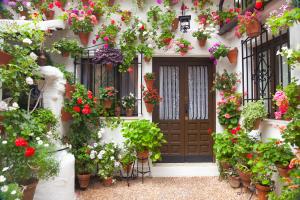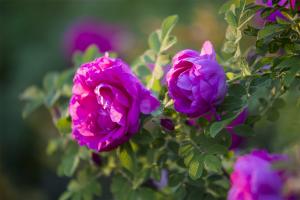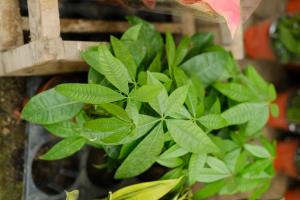When to Plant Birch Trees in Zone 6
If you live in Zone 6 and are considering planting birch trees in your garden, it's important to know the best time to do so. Birch trees are loved for their striking bark and delicate leaves, but they require the right conditions to thrive. In this article, we'll discuss the ideal planting time for birch trees in Zone 6 and offer some tips for ensuring their success.
The Importance of Zone 6
Zones are used by gardeners to determine the best times to plant different species of plants, trees, and shrubs. These zones are based on the average temperature ranges in a given area, and each zone has a specific set of plant types that can survive there. Zone 6 covers a large portion of the United States, including parts of the Northeast, Midwest, and West Coast. Knowing your zone is important when selecting plants for your garden because it helps ensure they are hardy enough to survive the extreme temperatures of your region.
What Are Birch Trees?
Birch trees are known for their striking white bark, delicate leaves, and graceful shape. They are a popular choice for gardens and landscaping because they add visual interest and have a relatively small footprint. Birch trees come in a variety of species, including paper birch, which is native to North America and has the classic white bark that many people associate with birch trees. Other species can be found in different regions, such as Europe and Asia.
The Best Time to Plant Birch Trees in Zone 6
The ideal time to plant birch trees in Zone 6 is in the spring, after the last frost has passed. This usually occurs in late April or early May. Planting in the spring gives the tree ample time to establish roots before the hot summer months arrive. If you missed the spring planting season, you can also plant birch trees in the fall, before the first frost sets in. In Zone 6, this window is typically from early September to mid-October. Planting in the fall allows the tree to take advantage of the cooler temperatures and prepare for winter dormancy.
Preparing the Soil
Before planting your birch tree, it's important to prepare the soil. Birch trees prefer well-draining soil with a pH range of 5.0-6.5. If your soil is too acidic, you can add lime to raise the pH. If it's too alkaline, you can add sulfur or peat moss to lower the pH. You should also ensure that the soil is rich in organic matter, such as compost or aged manure, to provide the tree with the nutrients it needs to thrive.
How to Plant a Birch Tree in Zone 6
When planting your birch tree, follow these steps:
Choose a location with full sun or partial shade.
Dig a hole that is two to three times the size of the root ball.
Place the tree in the hole and backfill with soil. Be sure to tamp down the soil to remove any air pockets.
Water the tree well and add a layer of mulch around the base to help retain moisture.
Continue to water the tree regularly. Birch trees require consistent moisture to thrive, so be sure not to let the soil dry out completely.
Caring for Your Birch Tree
Once your birch tree is established, it's important to care for it properly to ensure its longevity. Here are some tips for caring for your birch tree:
Water the tree regularly, especially during hot, dry spells.
Fertilize the tree once a year with a balanced fertilizer, preferably in the spring.
Prune the tree as needed to remove any dead or damaged branches.
Watch out for common birch tree pests, such as the bronze birch borer and birch leaf miner. If you notice signs of infestation, such as yellowing leaves or holes in the bark, contact a professional arborist for treatment.
Conclusion
Birch trees are a beautiful addition to any garden or landscaping scheme. By planting them in the correct zone and at the right time, and following proper care techniques, you can enjoy the beauty of these trees for many years to come.

 how many times do yo...
how many times do yo... how many planted tre...
how many planted tre... how many pine trees ...
how many pine trees ... how many pecan trees...
how many pecan trees... how many plants comp...
how many plants comp... how many plants can ...
how many plants can ... how many plants and ...
how many plants and ... how many pepper plan...
how many pepper plan...






























